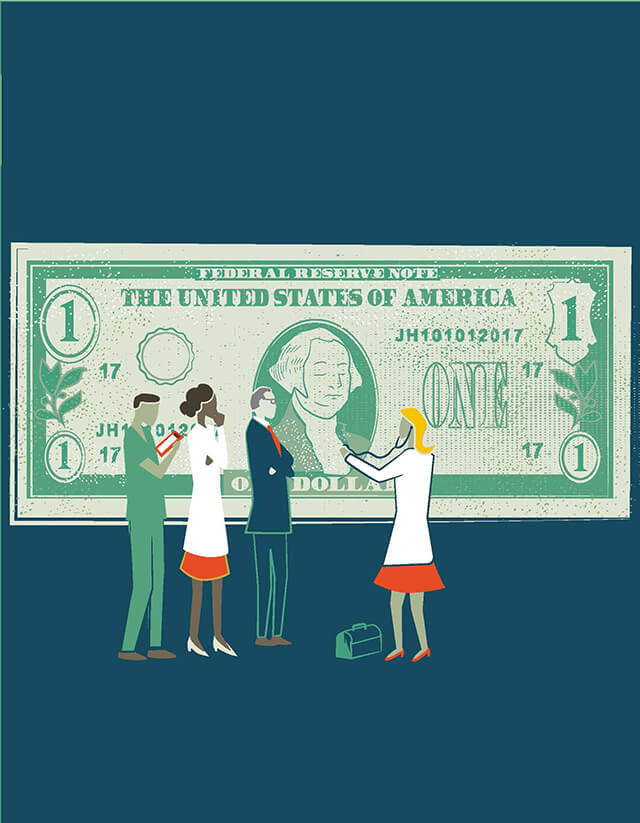The Price We Pay: Growing Old in America

Science Writers' Boot Camp
Monday, May 7, 2018
9 a.m. to 5:00 p.m. with reception to follow
The National Press Club
Washington, D.C.
About the Event
It is our most rapidly growing population.
It leads to our highest health care costs.
And we’re least prepared to deal with it.
Let’s talk about growing old in America.
Presentations
Note: These videos and presentations are for information purposes only and should not be re-purposed. If you are interested in using an image or video, please contact the media team at [email protected] to request permission.
Welcome and Introduction
Stephen Desiderio, M.D., Ph.D.
Healthy Today, Frail Tomorrow
Jeremy Walston, M.D.
Jeremy Walston has played a crucial role in defining physical frailty and its biological underpinnings in older adults. In this talk, he will provide answers to the question– What helps keep an aging person resilient and healthy and what drives frailty and vulnerability in aging?
The Healthy Aging Mind—Aging Aging Gracefully and Beating Depression
Jin Joo, M.A., M.D.
What should you expect from a healthy aging mind? How can you identify depression in older adults? Jin Joo will address these questions and discuss the impacts of depression among minorities.
The Age of Telomeres and Getting It Just Right: Not Too Long, Not Too Short
Carol Greider, Ph.D.
Telomeres are dynamic structures at the ends of all chromosomes and if left unchecked can lead to diseases. When telomeres become too short people get age related degenerative diseases, however if telomeres are too long there is the risk of cancer. Carol Greider is focused on discovering just how it is that the cell maintains just the Right length to maintain chromosomes and mitigate against disease.
The $99 Question: Can a DIY Home Test Really Tell Your Biological Age?
Mary Armanios, M.D.
Don’t jump right into telomere testing just yet! Mary Armanios will discuss why home-based testing may not be accurate and where and when more precise telomere tests can be useful.
The Young Who Die Old: Understanding Progeria and its Link to Normal Aging
Susan Michaelis, Ph.D.
We’ve all seen the haunting cases of young people’s bodies that age far before their time. Susan Michaelis will explain what causes this very rare genetic disease called progeria, and how does it compare to normal aging.
The Hidden Job of the Powerhouse of the Cell
Dan Arking, Ph.D.
Mitochondria are bean-shaped organelles known as the cell’s internal power generator. But Dan Arking has found another role for these power plants: a cell’s longevity.
Long Lasting Proteins, Long Lasting Memories
Richard Huganir, Ph.D.
Rick Huganir will discuss his lab recent discovery of long lasting proteins in the brain’s synapses that play an important role in keeping your childhood memories alive.
Parkinson’s Disease and the Silver Tsunami
Valina Dawson, Ph.D.
Parkinson’s disease is a common, relentless neurodegenerative disease for which current medical therapies address some symptoms, but do not slow or halt disease progression. Valina Dawson will review innovations that may change this trajectory.
Aging Brains, Stress and Alzheimer’s: A Correlation?
Kellie Tamashiro, Ph.D.
It turns out that the effects of stress can be worse than just a few more grey hairs. Kelly Tamashiro will discuss the cognitive effects of stress on aging brains.
Aging in Place: Navigating Alzheimer's Care
Constantine Lyketsos, M.D.
The number of Americans living with Alzheimer's disease could increase to 16 million by 2050. Constantine Lyketsos will tell you how to keep your grandparents at home for as long as possible should they develop this disease.
Honestly, Does Brain Training Really Work?
George Rebok, Ph.D.
Grandpa can barely remember your name but granny still embarrasses you by telling your friends your most awkward childhood moment. Why can’t we have a happy medium? George Rebok will explain why some older adults remember better than others their age, and the various benefits of cognitive training for older adults.
The Hidden Risks of A Male Hormone to a Woman’s Heart
Erin Michos, M.D., M.H.S.
The battle of the sexes can happen even at biological levels. Erin Michos will talk about her findings on how testosterone levels in older women may lead to increased risk of heart disease.
Old Habits Die Hard: Reining in Antibiotic Use
Morgan Katz, M.D., M.H.S
Antibiotic resistance is a public health crisis fueled by widespread misuse of antibiotics. The majority of this misuse occurs in nursing homes, where over 50% of suspected infections treated with antibiotics do not actually require them. Morgan Katz will discuss an ongoing national behavior-based intervention targeting prescriber and patient beliefs about antibiotic prescriptions.
Too Frail for Surgery – or Not?
Ali Karim Ahmed, Neurosurgery Research Fellow, M.D. Candidate
The number of older adults undergoing surgery in the US is rising. How do we determine who will do well and who is at higher risk for complications after surgery? Dan Sciubba will discuss techniques for quantifying such risks to identify the best candidates for spine surgery.
